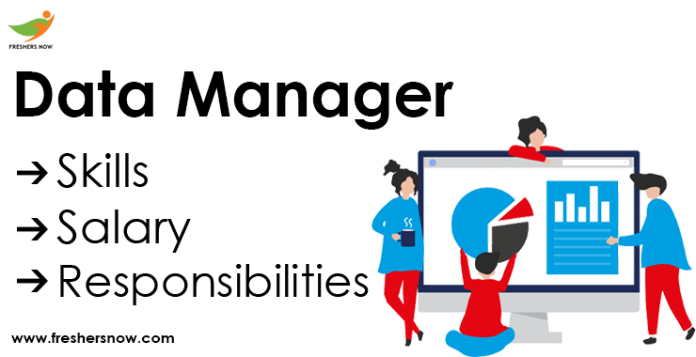
Hello Viewers, Are you searching for Data Manager Salaries in India?
If yes, this is the post for you. From the start till the end, all it says is about Data Manager, Data Manager Salary, Data Manager Skills, and so many questions like these.
This post will answer all your queries regarding Data Managers.
Who is a Data Manager?
A data manager develops and governs data-oriented systems designed to meet the needs of an organization or research team. Data Management includes accessing, validating, and storing data that is needed for research and day-to-day business operations. Currently, a wide array of organizations are using big data to gain insights into customer behavior and to provide business intelligence, making a data manager a necessity. Data managers are needed in a variety of industries, including financial, medical, and educational organizations.
Data Manager Salary in India
The latest salary for a Data Manager is ranging from a minimum of ₹1,99,000 to a maximum of ₹3m. The average salary of a data manager is Rs.839,636 per annum.

Source: Payscale
What does it take to be a Data Manager?
Typically, a data manager comes with a bachelor’s degree in a computer-related field (information technology, computer science, etc.) and one to four years of experience. Some positions may require an MBA. A data manager must be familiar with mainframe computers and hard disk arrays and have a logical, analytical mind with good problem-solving skills.
What does a Data Manager do?
Roles and Responsibilities of a Data Manager
- Manage incoming data files on clients and staff
- Provide individual accounts with access to appropriate data
- Maintain databases and perform routine maintenance as necessary
- Streamline data collection and analysis procedures to ensure fast access to metrics
- Generate and review documentation for all database changes or refinements
- Review data for inconsistencies or anomalies that could skew analytical results
- Make recommendations for software, hardware, and data storage upgrades
- Communicate with managers and staff about data changes or requirements
Factors Affecting Data Manager Salary in India
The salary of a Data Manager in India depends upon several factors like
- Company size.
- Location.
- Education Qualifications.
- Experience.
What are the popular skills to become a Data Manager?
- Looking at and Analyzing Data
- Navigating Database Software.
- Data Integrity.
- Managing Accounts and Files.
- Database Design and Planning.
Data Manager Salary in India: Based on Experience
Let’s see how a Data Manager’s salary in India varies based on experience.
Entry-Level Data Manager Salary in India
The average entry-level Data Manager salary in India is ₹365,000/yr.
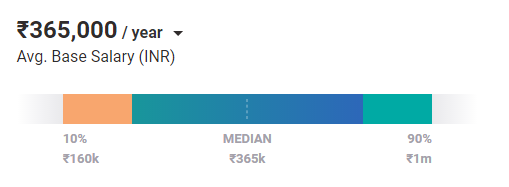
Mid-Level Data Manager Salary in India
The average mid-level Data Manager salary in India is ₹848,941/yr.
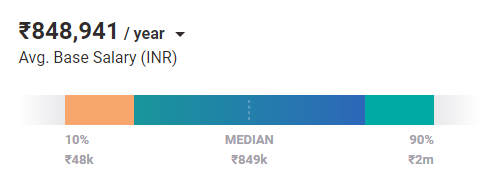
Experienced Data Manager Salary in India
The average experienced Data Manager salary in India is ₹1,614,000/yr.
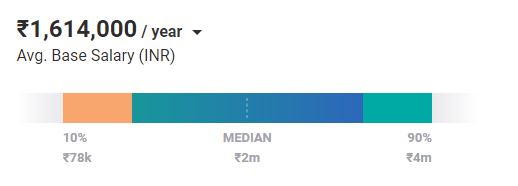
Data Manager Salary in India: Based On Location
Average Data Manager Salary in Bangalore, Karnataka
The average salary for a Data Manager in Bangalore is ₹1,561,076 per year.
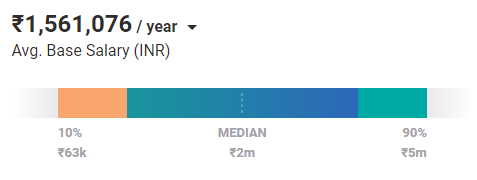
Average Data Manager Salary in Mumbai, Maharashtra
The average salary for a Data Manager in Mumbai is ₹700K per year.
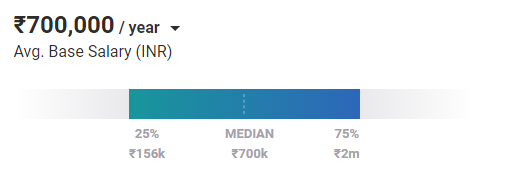
The average salary for a Data Manager in Chennai is ₹858K per year.
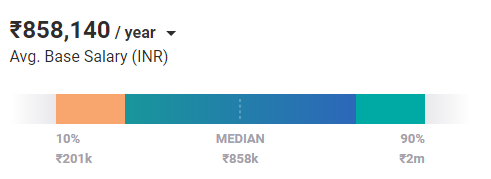
Average Data Manager Salary in Pune, Maharastra
The average salary for a Data Manager in Pune is ₹485K per year.

Average Data Manager Salary in Hyderabad, Telangana
The average salary for a Data Manager in Hyderabad is ₹590K per year.

We hope the above provided information about “Data Manager Salary in India for Freshers and Experienced” is useful to you. To conclude, Data Management is an essential step toward controlling the massive amounts of structured and unstructured data deluging organizations every day. The use of best practices helps an organization maximize the value of their data and find business insights. An additional benefit is improved compliance – the result of organizations striving for greater transparency in their business processes. Data Management can also enhance customer relationships and loyalty by tailoring services to customers and personalizing their interactions



